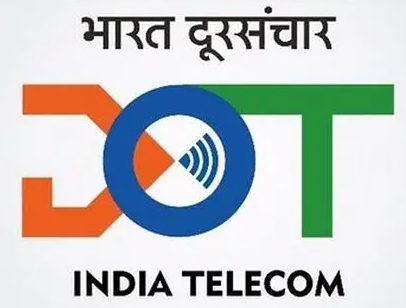India’s telecom ecosystem plays a crucial role in powering the digital economy, with millions of devices connecting users every day. To safeguard this ecosystem, the Department of Telecommunications (DoT) has enforced stringent rules for International Mobile Equipment Identity (IMEI) registration and has prohibited IMEI tampering under the Telecommunications Act, 2023 and the Telecom Cyber Security Rules, 2024. These measures aim to curb counterfeit devices, protect telecom networks, and strengthen national cyber security.
Legal Provisions Governing IMEI Regulations
The Telecommunications Act, 2023 clearly defines offenses related to tampering with telecommunication identifiers, including IMEI numbers. Section 42(3)(c) prohibits any form of tampering of telecommunication identifiers, while Section 42(3)(f) classifies possession of any device with unauthorized or tampered identifiers as a punishable offense. These violations attract imprisonment of up to three years, fines up to ₹50 lakh, or both. Under Section 42(7), such offenses are cognizable and non-bailable. The Act also penalizes abetment or facilitation of IMEI tampering under Section 42(6), ensuring liability across the supply chain.
Mandatory Requirements for IMEI Registration
The Telecom Cyber Security Rules, 2024 mandate that all manufacturers, importers, brand owners and sellers must register IMEI numbers for every device before its sale, testing, research or development. Registration must be done through the Device Setu – Indian Counterfeited Device Restriction (ICDR) portal. Manufacturers in India must register IMEIs before first sale or even for R&D units. Importers must register IMEIs before bringing devices into the country and obtain necessary certificates for customs clearance. These rules apply to all devices such as smartphones, modems, modules, dongles, tablets, laptops with cellular connectivity, mobile hotspots and SIM boxes.
Amendment Rules and Government Directives
The Telecom Cyber Security Amendment Rules, 2025 empower the Central Government to direct manufacturers to avoid assigning IMEIs that are already active in Indian telecom networks. This ensures uniqueness of identifiers and prevents duplication. Additionally, Rule 8(3) of the 2024 Rules prohibits intentional removal, alteration or reconfiguration of IMEIs, including the use of devices with programmable IMEIs. Violations attract strict legal action.
Central IMEI Database and Responsibilities of Sellers
The government maintains a national database of blacklisted or tampered IMEI numbers. Entities dealing in second-hand or refurbished mobile devices must verify IMEI authenticity on this database before sale. A fee-based verification process ensures that counterfeit devices do not circulate in the market. Any neglect in verification can result in severe penalties and liability.
Under Rule 5 of the Telecom Cyber Security Rules, 2024, the Central Government can instruct telecom service providers to block devices with tampered or duplicated IMEIs from operating in Indian networks. This step ensures network hygiene and enhances telecom cyber security.
Purpose and Importance of Compliance
These regulations collectively help safeguard telecom networks, prevent tax evasion through grey-market devices, support law enforcement agencies in tracking cybercrime, and prevent the spread of counterfeit products. Compliance ensures a safer digital environment and protects consumers as well as businesses from operational and legal risks.
Registration Process Through Device Setu
All entities must complete registration through the Device Setu – ICDR portal. The process includes company registration, brand registration mapped with GSMA TAC, model approval, IMEI uploading, and certificate issuance for customs or sale. Proper adherence to this process is essential to avoid penalties and delays.
Important Resources
Legal documents such as the Telecommunications Act, 2023, the Telecom Cyber Security Rules, 2024 and the Telecom Cyber Security Amendment Rules, 2025 are available on the official DoT website. These documents offer complete guidance for manufacturers, importers and sellers to ensure compliance.






